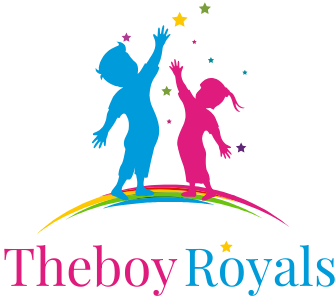Table of Contents
ToggleImagine a world where your newborn’s tummy troubles get fixed faster than you can say “colic”. That’s where Mylicon comes in, a popular over-the-counter remedy designed to relieve gas in infants. But is it safe? As parents, we want to wrap our little ones in bubble wrap while keeping them comfortable. So let’s jump into the ins and outs of Mylicon to see if it’s a superhero or just another overhyped solution for your baby’s tummy woes.
Understanding Mylicon: What Is It?

Mylicon is an anti-gas medication primarily used to relieve discomfort caused by excess gas in infants. It contains simethicone, which breaks down gas bubbles in the stomach, making it easier for your little one to dispel them. In simpler terms, it’s like giving your baby’s tummy a gentle nudge to say, “Hey, let’s get this gas out of here.” Since its introduction, Mylicon has become a staple in many parents’ medicine cabinets, praised for its ease of use and fast-acting relief. But as with any medication, there are nuances to consider, especially when it comes to the delicate systems of newborns.
Common Uses of Mylicon in Infants
Parents often turn to Mylicon for a variety of issues related to gas. Many babies experience discomfort from gas due to their immature digestive systems, especially during the first few months of life. Here are some of the common scenarios where Mylicon might be a go-to solution:
- Colic Relief: Often associated with excessive crying, colic can leave parents at their wits’ end. Mylicon helps by easing the gas-related discomfort that may contribute to colicky behavior.
- After Feeding Troubles: Many infants swallow air while feeding, which can lead to a build-up of gas. Mylicon can be administered before or after feeding to reduce bloating and fussiness.
- General Discomfort: If your baby seems unusually fussy and you’ve ruled out hunger, a little Mylicon might just be the answer to a happy tummy.
Overall, Mylicon serves as a quick fix to alleviate discomfort from gas-related issues, making it a go-to for many sleep-deprived parents.
Safety Profile of Mylicon For Newborns
In navigating the safety of any medication for infants, it’s essential to investigate into the specifics. Mylicon, generally considered safe for newborns, has been used widely for years. But, every parent likes to weigh the facts.
Active Ingredients and Their Effects
Simethicone is the active ingredient in Mylicon. It acts as an anti-foaming agent that reduces the surface tension of the gas bubbles in your baby’s stomach. This helps combine smaller bubbles into larger ones, making it easier for babies to pass gas. Simethicone has a long history of safe use in both over-the-counter medications for adults and infants, meaning that parents can usually feel confident in its efficacy.
Potential Side Effects to Consider
While the safety profile of Mylicon is generally good, it’s not entirely without risk. Some potential side effects in infants can include:
- Minor Digestive Upset: Some babies might experience mild diarrhea or changes in stool consistency after taking Mylicon.
- Allergic Reactions: Though rare, signs of an allergic reaction could include rash, hives, or difficulty breathing. If you notice any of these, consult a pediatrician promptly.
These side effects underscore the need for monitoring your baby’s reaction after administering the medication. Always question if medication is truly necessary.
When to Consult a Pediatrician
Even though Mylicon’s reputation as a gas relief hero, there are times when it’s best to consult a pediatrician. If your newborn exhibits any of the following signs, do not hesitate to raise your concerns:
- Persistent Crying: If your baby is crying excessively or showing signs of distress beyond typical fussiness, it’s wise to seek professional advice.
- Poor Feeding: A sudden decrease in feeding or refusal to eat may indicate an underlying issue that needs to be addressed.
- Unusual Symptoms: Any unusual symptoms beyond mild fussiness and gas, such as vomiting, lethargy, or fever, should prompt a call to your pediatrician.
It’s always better to err on the side of caution. In many cases, doctors can provide insights or recommend alternatives that might suit your baby better.
Alternatives to Mylicon For Newborns
If you remain unsure about using Mylicon for your newborn, several alternatives may provide relief from gas and discomfort. Here are a few noteworthy options:
- Gripe Water: This herbal remedy has been a popular choice among parents for centuries. It often includes ingredients like ginger and fennel, which are known to settle the stomach.
- Probiotics: Many parents report success with probiotics, which may help improve gut flora and ease digestive discomfort over time.
- Natural Remedies: Simple tummy massages or gentle rocking can also help babies release gas naturally. Sometimes the old-fashioned methods can be the most comforting.
Exploring these alternatives allows for a more personalized approach to managing your newborn’s gas discomfort.







